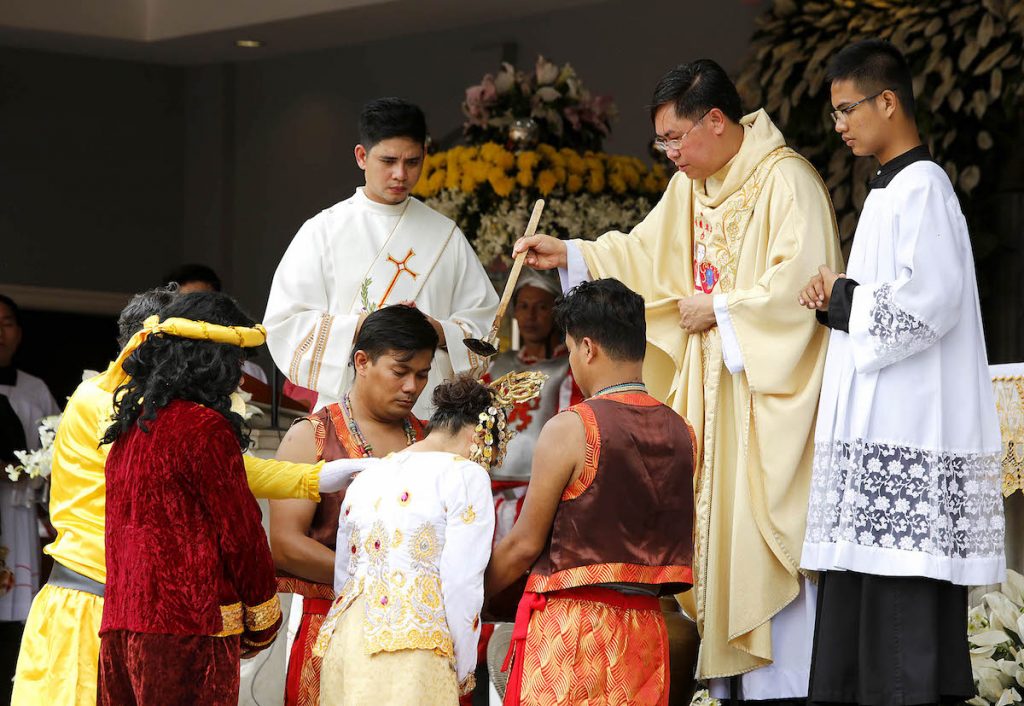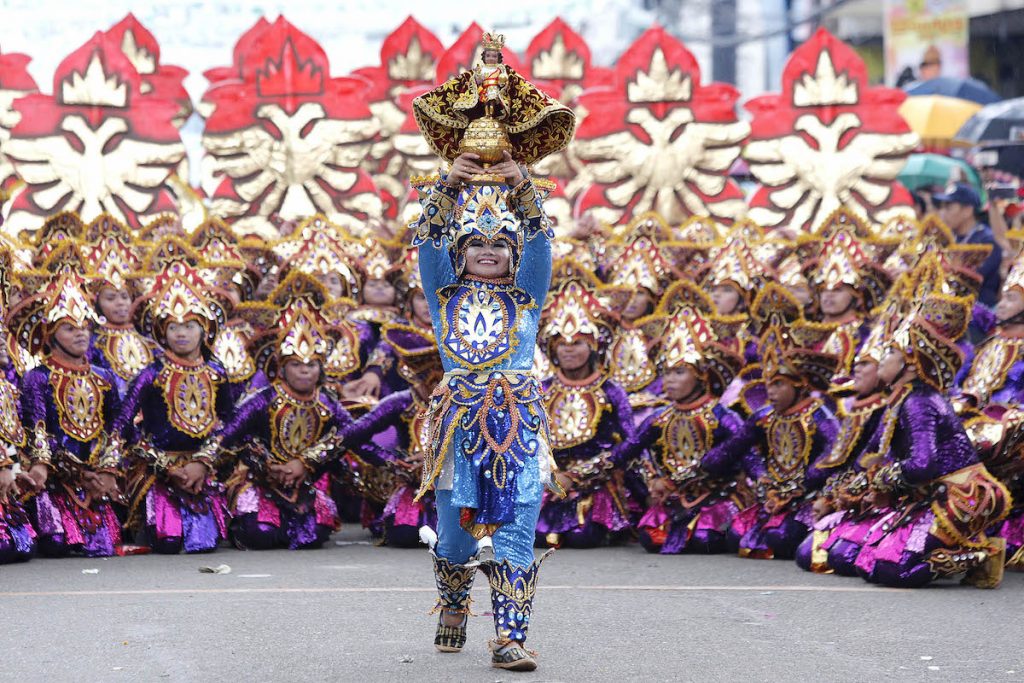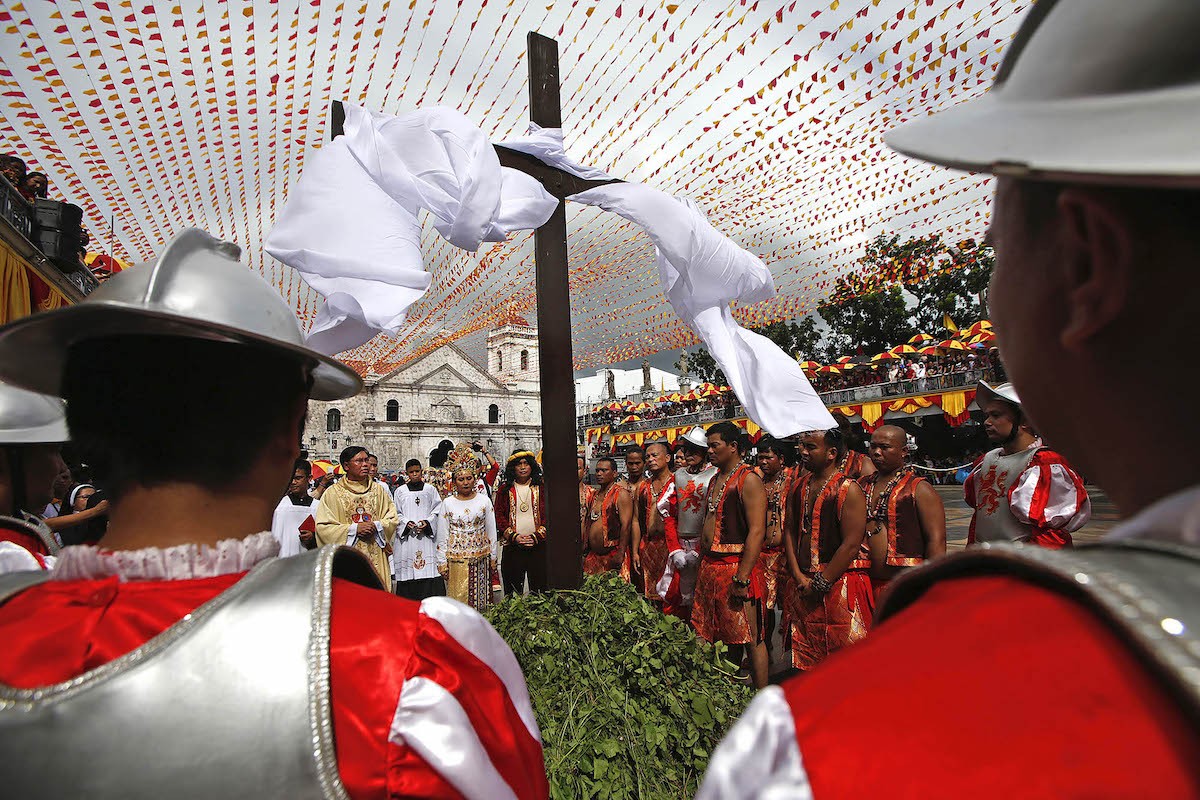Early on, history books taught primary school students in the Philippines that their country was “discovered” for the Western world by Ferdinand Magellan, a Portuguese navigator in the service of Spain, in 1521.
Such “discovery” allowed Spain to keep the natives under colonial rule for nearly 400 years, which only ended when the country was ceded by Spain to the United States, then an emerging world power.
But Magellan’s arrival also introduced Filipinos to Christianity, with which the Spaniards were able to effectively wield both the sword and the cross to their advantage.
Next year, the Philippines will celebrate “500 years of Christianity.”
Christianity as the focus of the celebration is significant because it remains the dominant faith in the country, even as most of its neighbors in this part of the world profess belief in other religions, such as Islam.
In fact, even before Magellan came, Islam had already established a foothold in parts of the southern Philippines.

Leading the celebration is the Catholic Bishops Conference of the Philippines.
According to Davao Archbishop Romulo Valles, president of the conference, among the activities lined up is the publication of a book that will tell the story of the birth of Christianity in the Philippine archipelago; the holding of a National Mission Congress from April 12 to 16, which is intended to make the Catholic faithful realize “how gifted we are” (and thus motivate us to give more); and the reenactment of the first baptism in the Philippines.
The Church also plans to conduct a pilgrimage of the Jubilee Cross to mark the start of the countdown toward the quincentennial celebration of the Catholic faith in the Philippines.
The Catholic Church has already released the official theme and logo for the fifth centenary of Christianity in the Philippines — “Gifted to Give” or “500YOC”.
The logo’s central figure was conceptualized based on a painting of national artist Fernando Amorsolo, titled “The first baptism in the Philippines.” It also displays a cross, a ship, a hovering color of blue, the sun, the “Ichthus,” and a holy rosary.
But what’s the reason for the grand celebration in 2021? In an article written in 2019, “Why celebrate 500 years of Christianity in the Philippines? Was not Christianity a mere tool for colonial rule?”, Bishop Pablo Virgilio David wrote:
“The same Christian faith that the conquistadores tried to use in order to pursue their colonial purposes in our country also inspired our revolutionaries around three and a half centuries later to dream of freedom and democracy. It is the same Christian faith that eventually motivated them to defend the basic human dignity of the Indios and to desire to put an end to tyranny and colonial rule.
“The mere fact that we eventually repudiated colonial rule but continued to embrace the Christian faith even after we won the revolution could only mean that the natives did not equate Christianity with colonialism. At some point, the faith that they had embraced was no longer alien to them. It had succeeded in taking root on the fertile ground of our innate spirituality as a people.
“Let us, therefore, make it clear: what we will celebrate in 2021 is not colonialism but the Christian faith that the natives of these islands welcomed as a gift, albeit from people who were not necessarily motivated by the purest of motives. God can indeed write straight even with the most crooked lines,” he wrote.

For his part, Redemptorist priest Amado Picardal, in an article, “Celebrating 500 years of Christianity in the Philippines,” published in October last year, asked: “Why should we celebrate 500 years of Christianity in the Philippines?”
He answers his own question thus: “Any big celebration such as the fifth centenary of the coming of Christianity to the Philippines is an occasion for remembering the past. To do so unavoidably reopens old wounds that may have been forgotten or glossed over. This is especially true because the missionaries accompanied the colonizers. Christianity and colonization came together.
“The Christian faith was a gift which was handed to us by the Spanish missionaries. Contrary to the popularized image of the sword accompanying the cross, the early missionaries represented by Manila Bishop Domingo Salazar were the conscience of the colonizers following the prophetic example of Fray Bartolome de Las Casas and Francisco de Vittoria in the Americas,” he wrote.
“They denounced the abuses that were committed and questioned the subjugation of the natives. Compared to the harsh missionary practices in the Americas, the evangelization of the Philippines was more systematic and benign. The missionaries learned the language of the natives and adapted the Christian faith to their beliefs and practices. Devotions to the blessed Virgin Mary and the saints as well as the fiestas proliferated. Native lay people were involved in the missionary enterprises.
“The missionaries introduced new crops and agricultural methods. They supervised the building not only of churches, but towns as well as roads and bridges …. The archipelago with many islands and numerous regions and barrios gradually grew into a nation united by a common faith throughout three centuries of colonial rule and missionary evangelization.”
Father Picardal pointed out that the Church played an important role through various periods in Philippine history, from the time of the Philippine Revolution in 1896 down to the American colonial period, the immediate post-World War II era, the martial law years, and even now under President Rodrigo Duterte’s authoritarian rule, marked by a bloody war on drugs.
“Thus, the Church and Christianity is an integral part of Philippine history and culture. It is for this reason that the fifth centenary celebration is not just a Church celebration, but deserves the recognition and appreciation of the state and the nation. Broadly speaking, it is not just an ecclesial celebration, but also a celebration of who we are as a people and nation. For better or for worse, without the arrival of Magellan and the Spanish missionaries to our shores, there would have been no Philippines.”
Ernesto M. Hilario writes on political and social justice issues for various publications in the Philippines.
The views and opinions expressed in this article are those of the author and do not necessarily reflect the official editorial position of LiCAS.news.







